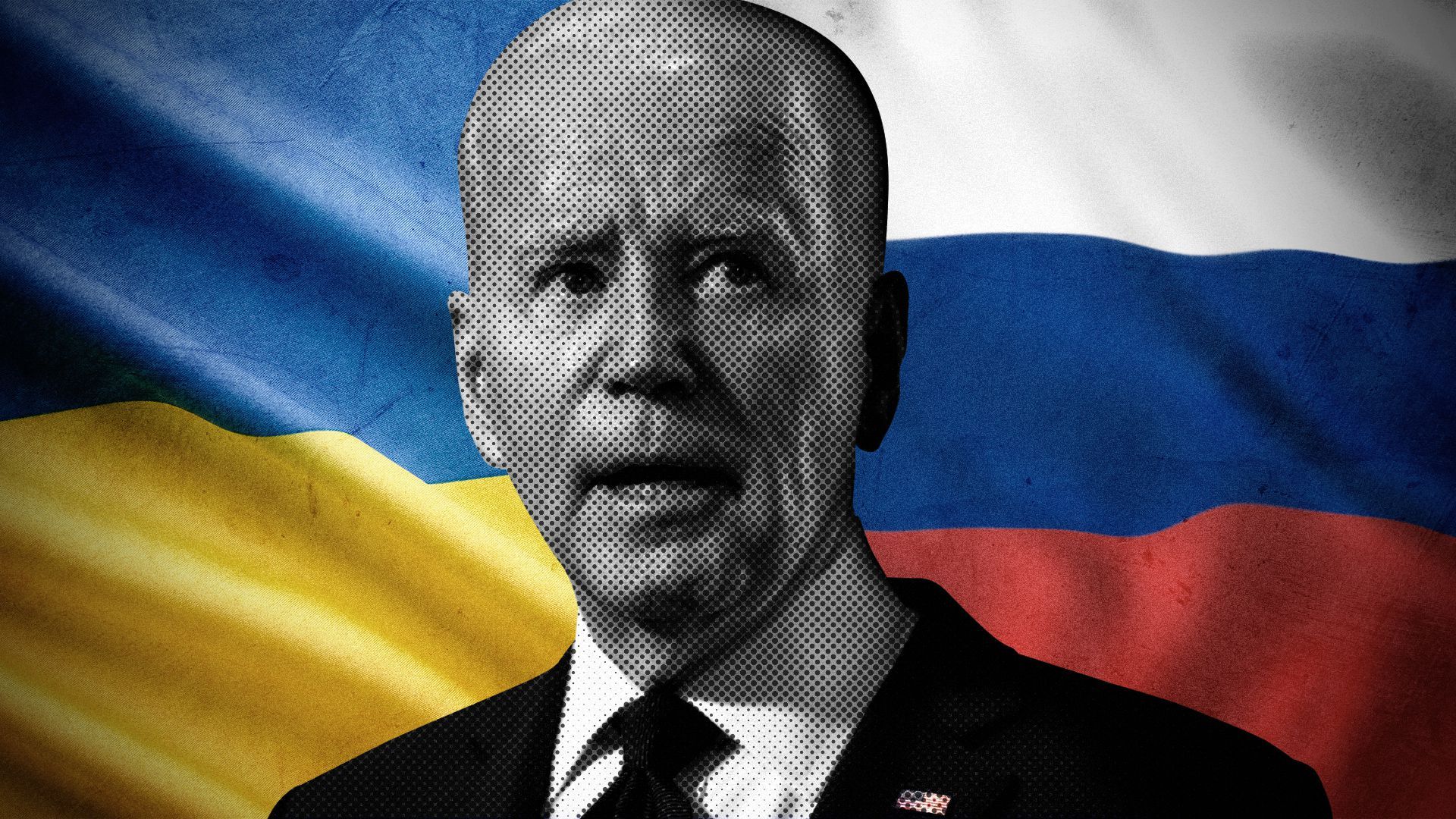| | | | | | | Presented By Cognite | | | | Axios Generate | | By Ben Geman and Andrew Freedman ·Mar 03, 2022 | | 👋 Hello again! Today's Smart Brevity count is 1,324 words, 5 minutes. 🗓️ Join Axios virtually at our 1st What's Next Summit on April 5. Register for sessions on trends that will revolutionize our future. 🚨 Follow Axios' live updates on the war in Ukraine. | | | | | | 1 big thing: The war in Ukraine is reshaping air travel |  Data: FlightAware; Map: Jacque Schrag/Axios The Russian invasion of Ukraine is rippling throughout the aviation industry just as it emerges from the COVID-19 downturn, Andrew writes. Why it matters: The closure of vast stretches of airspace from North America to Russia has airlines scrambling to reroute flights. Flight times are increasing, along with their carbon footprints. - In many cases, new routings to avoid both Ukrainian and Russian airspace have been adding hours to long-distance flights, resulting in greater emissions and higher costs for airlines amid increasing fuel prices.
The big picture: The airspace restrictions are blocking the most efficient flight paths between continents. - According to Umang Gupta, managing director at Alton Aviation Consultancy, the typical flight time between Europe and Asia is about 11.8 hours, and 13.5 hours flying the reverse leg, but that was when Russian airspace was open.
- Now, "In a best-case scenario, more than two hours of flight time will be added in each direction," Gupta told Axios. The round trip fuel burn would increase by more than 20%, he said, and that's for the most fuel-efficient wide-body aircraft flying today, such as the Boeing 787-9 or Airbus A350-900.
- At today's oil prices of around $100 per barrel, "this will translate into nearly $25,000 of additional expenditure for the airline round trip," Gupta said via email.
- "Several U.S. carriers also use Russian airspace to fly to Asia and have to look for alternative longer routes, or perhaps even consider 'tech stops' to refuel, reduce passenger capacity or cargo on board," he said.
- According to FlightAware data, United Airlines has redirected its flight from Chicago to Delhi to fly a far more southerly route, adding at least an hour to the eastbound journey, and about two hours for the return.
Between the lines: For many people, air travel comprises the largest part of their annual carbon footprint. The war and resulting airspace disruptions mean flights emit even more greenhouse gases, due to the added time in the air and fuel burned. - Gupta said that may be offset somewhat because some airlines are suspending flights that would be forced to fly exceptionally long routes. Passengers can also choose somewhat shorter alternatives, such as stopping in Dubai on the way to Asia.
- Air cargo routes are also shifting, which could exacerbate supply chain woes. Many cargo flights transited Russian airspace to fly between Europe, Asia and the U.S.
Read the whole story. |     | | | | | | 2. Plans emerge to cut EU thirst for Russian gas |  Data: IEA; Chart: Thomas Oide/Axios The Russian attack is creating new urgency around cutting Europe's heavy reliance on natural gas from Kremlin-backed suppliers, Ben writes. Driving the news: The International Energy Agency just unveiled a 10-point plan to cut Russian imports by over a third within one year. The ideas include... - Increasing reliance on other sources like piped gas from Azerbaijan and LNG; faster renewables deployment; higher gas storage requirements; maximizing nuclear output; and faster replacement of gas boilers with heat pumps.
- Meanwhile, the European Commission is slated to propose a plan next week. Euractiv saw a draft version.
Why it matters: IEA head Fatih Birol said in a statement that "nobody is under any illusions anymore." "Russia's use of its natural gas resources as an economic and political weapon show Europe needs to act quickly to be ready to face considerable uncertainty over Russian gas supplies next winter," he said. Yes, but: The most aggressive near-term moves would involve climate tradeoffs, even as Europe pursues longer-term decarbonization. The IEA notes that even faster cuts are possible with near-term boosts to coal-fired output and using oil in currently gas-fired power plants. The big picture: "The green shift is now likely to accelerate in Europe, further motivated by energy security," Jarand Rystad, CEO of the consultancy Rystad Energy, said in a note. "In the medium term, however, CO2 emissions could increase as coal may have to replace Russian gas in Europe." |     | | | | | | 3. Biden facing intensifying pressure on Russian oil |  | | | Photo illustration: Aïda Amer/Axios. Photo: Eric Lee/Bloomberg via Getty Images | | | | There are increasing efforts on Capitol Hill for President Biden to cut off U.S. imports of Russian oil, Ben writes. Driving the news: Joe Manchin, chair of the Senate energy committee, and GOP Sen. Lisa Murkowski are teaming up on legislation to ban imports of Russian crude and petroleum products, Politico and NBC News report. Those are just some of the many calls coming from lawmakers from both parties. The intrigue: The White House has made clear that direct sanctions against Russia's massive oil and gas exports aren't in the offing right now, given price shocks it would create. Europe is a huge destination for Russian oil. U.S. imports are pretty small, but it's a global market and U.S. gasoline prices are at their highest level in roughly eight years. The big picture: Oil prices have surged to far north of $100 per barrel anyway, in part because buyers are steering clear of Russian crude anyway. Energy Intelligence reports that combined Russian flows of crude oil and petroleum products have fallen by 2.5 million barrels per day this week "as a result of financial and shipping sanctions, combined with a general reluctance among buyers to risk taking Russian cargoes." What we're watching: For potential changes in the White House strategy as the political pressure escalates. Reuters reports: "The United States is open to imposing sanctions on Russia's oil and gas flows but going after its exports now could help Moscow, the White House said on Wednesday as oil prices surged to an 11-year high and supply disruptions mounted." |     | | | | | | A message from Cognite | | This is how data can help make legacy industries more sustainable | | |  | | | | Fossil fuels aren't going anywhere until we can power jets, replace plastics and heat industrial processes with sustainable alternatives. Okay, but: We need to produce and refine oil and gas with the lowest emissions possible — and we're going to do it with data. Learn the impact data can have. | | | | | | 4. What they're saying about Ford's EV push |  | | | The Ford F-150 Lightning electric pickup. Frederick J. Brown/AFP via Getty Images | | | | Ford's stock jumped over 8% yesterday after the auto giant said it's splitting its electric and internal combustion businesses into separate units, Ben writes. The intrigue: One piece of news that emerged after Wednesday's Generate: Ford now plans to spend $50 billion on electrification through 2026, up from the prior target of $30 billion through 2025. What they're saying: Edmunds' analyst Jessica Caldwell, in comments emailed to reporters, called the reorganization "simultaneously radical and rational." - "[C]ompanies like Ford need to put themselves in the best position to compete with EV-only companies like Tesla that aren't attempting to produce (and depend on profits from) ICE vehicles while also rolling out an aggressive EV strategy," Caldwell said.
- Bank of America analysts said in a note, "This reorganization should allow Ford to attract even more talent to the EV/future car business, and may allow Ford to raise low cost capital going forward, such as green bonds, to accelerate its EV efforts."
Yes, but: The internal combustion division, Ford Blue, will be the cash cow for the foreseeable future, fueled by highly profitable SUVs and pickups, Axios' Nathan Bomey notes. |     | | | | | | 5. Manchin hints at climate bill revival |  | | | Photo illustration: Sarah Grillo/Axios. Photo: Alex Wong/Getty Images | | | | Sen. Joe Manchin (D-W.Va.) told Politico about the parameters of a slimmed-down spending package he'd accept that nonetheless has major climate pieces, Ben writes. Driving the news: His idea is generating revenue from drug pricing reform and tax code changes to make companies and the rich pay their "fair share." Half the money would go to fighting inflation and the deficit, and the balance for climate and social spending. Yes, but: It's far from clear whether there's really a deal to be cut with Manchin. Stay skeptical, my friends. Why it matters: His vote is needed for Democrats to move anything big. - 2022 is very likely President Biden's last chance to move big climate legislation given GOP chances of retaking one or both chambers in the midterms.
- Democrats' plans have included some $550 billion for climate, most from the expansion of tax credits for renewable power, electric car buys and other clean energy.
|     | | | | | | 6. The public likes renewables |  Data: Pew Research Center; Chart: Axios Visuals A new Pew Research Center poll shows a stark partisan split on oil-and-gas drilling and electric cars, but more alignment on renewables, Ben writes. Why it matters: The survey comes at a key time for U.S. energy policymaking. - Democrats are hoping to resurrect their stalled plan to greatly expand tax credits that would speed wind, solar and EV deployment.
- Republicans and oil groups say Russia's attack makes the case for expanded U.S. production and exports to bolster energy security in Europe and domestically.
Of note: The poll was conducted in late January, before Russia's attack. |     | | | | | | A message from Cognite | | Why data is crucial in building the energy systems of tomorrow | | |  | | | | We're headed for a future where electricity is generated when the sun is shining and the wind is blowing, and where every house has solar panels on the roof and an electric vehicle in the garage. Take note: Our grids aren't prepared for that complexity — yet. With data-driven technology, they can be. | | |  | Bring the strength of Smart Brevity® to your team — more effective communications, powered by Axios HQ. | | | | | | Axios thanks our partners for supporting our newsletters. If you're interested in advertising, learn more here.
Sponsorship has no influence on editorial content. Axios, 3100 Clarendon Blvd, Suite 1300, Arlington VA 22201 | | | You received this email because you signed up for newsletters from Axios.
Change your preferences or unsubscribe here. | | | Was this email forwarded to you?
Sign up now to get Axios in your inbox. | | | | Follow Axios on social media:    | | | | | |











No comments:
Post a Comment